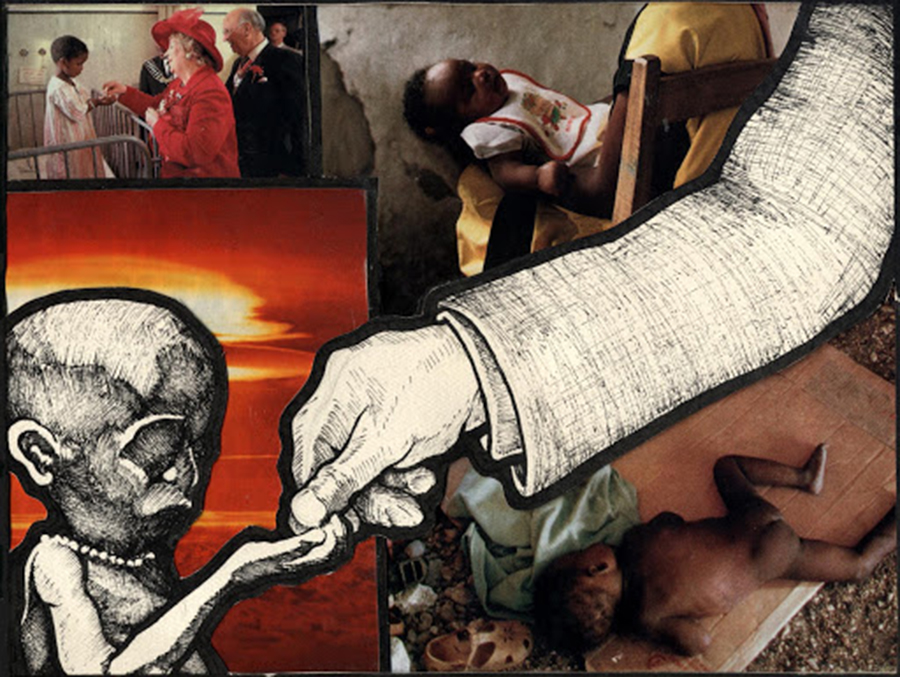The Covid-19 pandemic has sent shock waves to nations across the world, and African economies already neck-deep in debt have been forced to borrow even more. With a 21% Debt-to-Gdp ratio, Nigeria might be well on her way to losing control of her debts; there is an urgent need for reform.
Africa’s debt challenge is a well-known fact. For decades since independence, many African nations – for reasons ranging from surviving recessions to surviving thier bad habits – have borrowed funds from the international community to service infrastructural challenges, amongst others.
From issuing foreign currency denominated Eurobonds, to China’s debt-traps, and even care packages at low costs from international organizations, the continent has perpetually reached out for external help to meets its needs. It is so bad, that analysts at Bloomberg revealed that governments in these nations are now spending more on debt-service costs than on health!
As of 2017, 19 African countries had exceeded the 60% Debt-to-GDP threshold previously put in place by the African Monetary Co-operation Program (AMCP) for developing economies. The World Bank also reveals that 24 countries have surpassed the 56% percent debt-to-GDP ratio put in place by the International Monetary Fund.
If nations had planned to cut down on such borrowings – especially those that came with the additional cost of their souls, or at least unfavorable interest rates – 2020 has proven to not be the year for that. No thanks to the exogenous shock that is Covid-19, African economies, and indeed economies across the world, have been hamstrung, taking only what they can obtain internally and grappling for external support to be able to ramp up their stimulus packages amongst other survival measures. The case isn’t any different for Nigeria.
(READ MORE: A Post-COVID Economy)
In March 2020, the Senate placed Nigeria’s total debt profile at N33 trillion after it approved an additional $22.7 billion foreign loan for the federal government. The implication of this is a 21% Debt-to-GDP ratio – a far cry from the minimum ratio.
In a public lecture organized by the National Institute for Legislative and Democratic Studies (NILDS), themed “Public Debt in Nigeria: Trend Sustainability and Management”, the Director-General of the Debt Management Office, DMO, Mrs. Patience Oniha, had expressed fears about the global economic effects of the Covid-19 pandemic and its ability to frustrate Nigeria’s attempts to service its debts.
She explained that asides the low Debt/GDP ratio, the actual debt service to revenue ratio had stood at over 50% since 2015 – an indicator of lower revenues and higher debt service figures. Despite the magnanimous donations from angel nations, Nigeria has only plunged further into debt.
Even though there have been speculations, so far, no African government has publicly announced its desire to waive payments on Eurobonds or change the terms of its contracts. However, The Group of 20 (G-20) had met weeks prior to this, to suspend $20 billion in bilateral debt payments from the world’s poorest countries, predominantly in Africa, until the end of the year. Very little can be said for the bondholders.
To nip the challenge in the bud, there is a need for restructuring of our debt while the country needs more loans at concessionary rates. Most economist estimate the country needs between N10- N20 trillion in funding if its to get this economy to start growing again and lift millions out of poverty.
Unfortunately, we are not the US and can’t print out way out of an imminent recession. That money will have to be raised via a bouquet of local and foreign debt, donor financing and private sector investment in the economy. It’s funding on the scale never before seen in the entire continent.
If raised and channeled appropriately, the impact could be exponential not just for commerce in Nigeria but for the whole sub-Saharan Africa. Jobs will be created, new trade routes invigorated and tens of millions of people lifted from out of poverty.
(READ MORE: COVID-19: Take-off of Africa Free Trade Zone “AFCFTA” Postponed)
But no one will bail out Nigeria with the current string of inefficient government policies. There is so much corruption in the public space there is little confidence that the money will be spent judiciously if every raised. It seems we also need a bailout from bad governance.
Private sector investments also needs to be secured if investors are to be wooed. You can’t have an investor bring in billions of dollars to build roads and have a mad man who just became governor cancel concessions for political reasons. Private property has to be protected and the laws of the land must adapt to the economy of now and the future.
In the light of its looming debt challenges, there is a need for Nigeria to welcome the idea of a reformation and restructuring program. The first reason is to mitigate the downward progression of its debt, and the other is to ensure that it remains attractive to international donor agencies. You have to demonstrate ability and capacity to repay the debts.
The plan will consist of a combination of borrowing, a focus on the service sectors, and stern economic reforms. The tripartite plan will serve as a balanced scorecard of some sort, ensuring that amidst its current and potential borrowings, its earning capacity is diversified as it looks beyond oil as a source of revenue by building up the nation’s service sector.
By encouraging industries, it can then expand its tax collection systems thereby boosting the overall revenue for the state. Whilst this is in no way conclusive, one thing is certain: Our inaction does nothing other than sinking us further into the troubles we created ourselves. There is a need to stop, think, and re-strategize our path from here on out.
